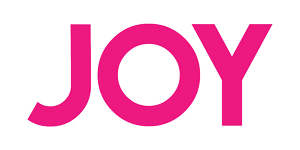A Discussion with Jannah Bailey
by Jennifer Kornegay

When she received her breast cancer diagnosis, Montgomery native Jannah Bailey took a normal knee-jerk reaction to the news and turned it on its head, finding the strength to fight. But she wasn’t alone. An army of friends and family stood beside her to help.
Tell us about your cancer diagnosis and treatment.
I had noticed a “dimple” on the underside of my right breast that was slowly getting bigger. I thought it was like cellulite, just another sign of getting old! I heard Joy [Blondheim, co-founder of the Joy to Life Foundation] speak, and she talked about the different signs of breast cancer. One was dimpling in the breast. It, of course, caused me concern. During this same time, our group of six longtime friends had gone on a girls’ trip, and one of those ladies had a lump she was telling she was concerned about. Shortly after the trip, she was getting her diagnosis, and I went with her. Sitting with her in the doctor’s office and hearing them tell her she had breast cancer, I realized that I probably did too. I decided to go and have my dimple looked at. My GYN was pretty sure it was cancer with just a look at my breast, so I went immediately to the Breast Cancer Center where I got an ultrasound and biopsy. I was diagnosed with Stage One Invasive Ductal Carcinoma. I had surgery on March 26, 2015, and 42 radiation treatments.
What was your first thought when you heard the diagnosis?
My initial reaction was anger. After working so long at Child Protect and seeing the results of what some pretty awful people did to kids, I didn’t understand why my family and I had to go through this. I did good in the world, so why me? It really sucked! But after crying and shouting in the car by myself, I then asked, why not me? How can I use this experience to encourage and support others with this same disease? That tiny change in my own attitude gave me the strength to fight and make sure cancer didn’t win.
Through the treatment process and after, what did you want and need from your friends and family?
I could not have made it through the initial surgery and follow-up treatments without my family, friends and even people I barely knew, but it was really after all that when I needed and relied on them the most. The fear of the cancer coming back is always in the back of my mind, and to be able to pick up the phone and call or text or meet for lunch just to express that helped give me the courage to stay positive.
What forms of help and support really stood out?
The cards and calls that came when I really needed them. The push to stay positive while ensuring me that I needed to acknowledge my feelings of anger and sadness. One of my friends, Laurie Weil, dropped off a blanket and the sweetest note to my office right after I started radiation. That blanket still means so much to me. It continues to give me hugs, and now when I know of someone else who has been diagnosed, I too gift them with a blanket. I also received a piece of art from Kay Sasser Jacoby the day before my surgery that I have hanging today in my house where I see it every single day. “With each new day comes new strength and new thoughts.” – Eleanor Roosevelt
What one thing that you did for yourself (exercise, mediation, prayer, some other habit, etc.) most helped you cope? My family was my No. 1 reason for never ever giving up. Making future plans, no matter how big or small, also has helped me. Having something to look forward to gives you an excitement and anticipation of the future that you don’t want to miss out on. Hiking, one of my favorite hobbies, became even more important to me. It is where I can be quiet and disconnected, away from all of the stress and noise. I love the mountains, and that is where I feel the closest to God.
What advice would you give others on how to approach and help their loved one going through cancer treatment? To me, the most important thing is to allow your family member/friend/whoever you know who is going through cancer to feel their feelings. Don’t discount their anger or sadness but just let them go through it and listen. Love and support them through it all. Send a card randomly. I promise those cards, calls or texts came at the exact time that I needed them. Let them talk about it. And don’t hesitate in telling them about stuff you have going on in your own life. I still wanted to hear about my friends’ and family members’ struggles and challenges, so I could be there for them, too. That gave me something else to focus on that wasn’t just me and my cancer.
In March of 2022 , Jannah Bailey accepted the position of President/CEO of the River Region United Way, becoming the organization’s first female in this position in its almost 100-year history. Prior to this role, she served at Child Protect, Children’s Advocacy Center as its executive director for 21 years.
